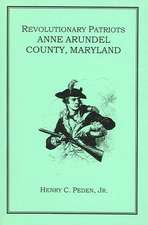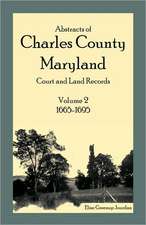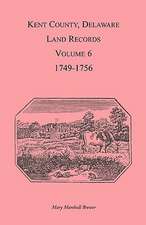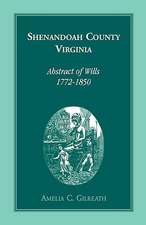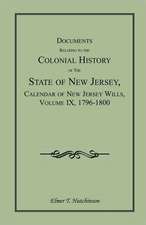The Georgia Peach: Culture, Agriculture, and Environment in the American South: Cambridge Studies on the American South
Autor William Thomas Okieen Limba Engleză Paperback – 7 mar 2018
| Toate formatele și edițiile | Preț | Express |
|---|---|---|
| Paperback (1) | 226.94 lei 6-8 săpt. | |
| Cambridge University Press – 7 mar 2018 | 226.94 lei 6-8 săpt. | |
| Hardback (1) | 181.61 lei 3-5 săpt. | +30.15 lei 7-13 zile |
| Cambridge University Press – 21 noi 2016 | 181.61 lei 3-5 săpt. | +30.15 lei 7-13 zile |
Din seria Cambridge Studies on the American South
-
 Preț: 238.69 lei
Preț: 238.69 lei -
 Preț: 224.34 lei
Preț: 224.34 lei -
 Preț: 438.44 lei
Preț: 438.44 lei -
 Preț: 159.81 lei
Preț: 159.81 lei -
 Preț: 197.70 lei
Preț: 197.70 lei -
 Preț: 178.06 lei
Preț: 178.06 lei -
 Preț: 240.43 lei
Preț: 240.43 lei -
 Preț: 181.61 lei
Preț: 181.61 lei -
 Preț: 134.01 lei
Preț: 134.01 lei -
 Preț: 280.63 lei
Preț: 280.63 lei -
 Preț: 299.99 lei
Preț: 299.99 lei - 11%
 Preț: 696.80 lei
Preț: 696.80 lei -
 Preț: 266.98 lei
Preț: 266.98 lei -
 Preț: 240.63 lei
Preț: 240.63 lei -
 Preț: 271.59 lei
Preț: 271.59 lei -
 Preț: 201.59 lei
Preț: 201.59 lei -
 Preț: 266.22 lei
Preț: 266.22 lei -
 Preț: 205.41 lei
Preț: 205.41 lei -
 Preț: 458.63 lei
Preț: 458.63 lei -
 Preț: 271.01 lei
Preț: 271.01 lei -
 Preț: 287.07 lei
Preț: 287.07 lei -
 Preț: 337.90 lei
Preț: 337.90 lei - 11%
 Preț: 654.29 lei
Preț: 654.29 lei -
 Preț: 267.75 lei
Preț: 267.75 lei -
 Preț: 224.62 lei
Preț: 224.62 lei -
 Preț: 272.75 lei
Preț: 272.75 lei -
 Preț: 269.48 lei
Preț: 269.48 lei -
 Preț: 273.13 lei
Preț: 273.13 lei - 11%
 Preț: 672.72 lei
Preț: 672.72 lei -
 Preț: 230.33 lei
Preț: 230.33 lei -
 Preț: 437.89 lei
Preț: 437.89 lei
Preț: 226.94 lei
Nou
Puncte Express: 340
Preț estimativ în valută:
43.42€ • 47.32$ • 36.59£
43.42€ • 47.32$ • 36.59£
Carte tipărită la comandă
Livrare economică 23 aprilie-07 mai
Preluare comenzi: 021 569.72.76
Specificații
ISBN-13: 9781107417717
ISBN-10: 1107417716
Pagini: 319
Ilustrații: 29 b/w illus.
Dimensiuni: 230 x 150 x 20 mm
Greutate: 0.47 kg
Editura: Cambridge University Press
Colecția Cambridge University Press
Seria Cambridge Studies on the American South
Locul publicării:New York, United States
ISBN-10: 1107417716
Pagini: 319
Ilustrații: 29 b/w illus.
Dimensiuni: 230 x 150 x 20 mm
Greutate: 0.47 kg
Editura: Cambridge University Press
Colecția Cambridge University Press
Seria Cambridge Studies on the American South
Locul publicării:New York, United States
Cuprins
1. A wilderness of peach trees; 2. The baron of pears; 3. Elberta, you're a peach; 4. A Connecticut Yankee in King Cotton's court; 5. Rot and glut; 6. Blossoms and hams; 7. Under the trees.
Recenzii
'Blessed with artistry, modesty, empathy, and discernment, William Thomas Okie is the perfect guide to a southern landscape where the power of environmental beauty is inspiring as well as oppressive.' Jared Farmer, author of Trees in Paradise: A California History
'Here is that rare book that delivers a lot more than it promises. In addition to 'culture, agriculture, and environment', Okie deftly incorporates race, science, technology, marketing and other national and global forces into a seamless interpretive synthesis, which in turn, provides the backdrop for a beautifully rendered, tart-sweet human narrative richly evocative of the eponymous fruit of the title.' James C. Cobb, University of Georgia
'This fabulous book will change the way you think about your favorite fuzzy fruit. Georgia's most touted crop was as much the product of southern politics and advertising as it was water, sun, and red Georgia clay. Covering tasty topics from agribusiness and immigrant labor to race and environmental history, it helps us understand what we eat and why we eat it. Don't miss a bite.' Cindy Hahamovitch, University of Georgia
'Ty Cobb was nicknamed 'The Georgia Peach', and like Cobb, William Thomas Okie's book is crafty, quick, thoroughly accomplished, and maybe even a little dangerous. Unlike Cobb [however], The Georgia Peach also opens our eyes to both the ridiculousness and the beauty of human beings' relationship with the natural world.' Aaron Sachs, Cornell University, New York
'… a new book tracing the history of the Georgia peach serves as an entertaining and enlightening review of the state's cultural evolution over the last 200 years and an instruction book for today's policymakers. … broadened insight flows like the juice of a fresh peach eaten in the shade of the tree it was picked from.' The Newnan Times-Herald
'Ever wonder why they call Georgia the Peach State? Thomas Okie will tell you. … He knows why we brag about it, marvel at it and generally try to name 57 different streets in downtown Atlanta after the tasty fruit scientists call Prunus persica. Okie, an author, historian and professor at Kennesaw State University, tells how it all came to be in his new book …' Bill Kirby, Augusta Chronicle
'Kennesaw State University Assistant Professor of History William Thomas Okie has written a marvelously entertaining and informative book on the history of the peach crop in the South …' Jim Morekis, Connect Savannah
'Not merely about the cultivation of the fruit, what follows is a complex story surrounding Prunus persica that starts long before this fruit and the state of Georgia became connected in the minds of a nation. This history is, necessarily, a story that contends with wider themes of agriculture, business, southern politics, and race and does not forget the beauty and mythology that surrounds this fruit. … There are many works about the history of peach cultivation but none such as this about Georgia. The work is appropriate for institutions with programs in American or agricultural history or programs in agriculture or business. It will be particularly valuable for all public and academic libraries in Georgia. Summing up: recommended. Lower-division undergraduates and above; faculty and general readers.' CHOICE
'This is a peach of a book … Okie's ability to weave disparate threads into a coherent and engaging whole makes it a model for other historians to follow and explains why the book has garnered awards on many fronts.' George B. Ellenberg, The American Historical Review
'The cover of this book makes me want to eat [a peach], and will make many people want to read the book. Covers can and do sell books, and this book should rightfully be judged by its cover: it is an exceptional piece of historical scholarship on so many levels.' Sterling Evans, Enterprise & Society
'Here is that rare book that delivers a lot more than it promises. In addition to 'culture, agriculture, and environment', Okie deftly incorporates race, science, technology, marketing and other national and global forces into a seamless interpretive synthesis, which in turn, provides the backdrop for a beautifully rendered, tart-sweet human narrative richly evocative of the eponymous fruit of the title.' James C. Cobb, University of Georgia
'This fabulous book will change the way you think about your favorite fuzzy fruit. Georgia's most touted crop was as much the product of southern politics and advertising as it was water, sun, and red Georgia clay. Covering tasty topics from agribusiness and immigrant labor to race and environmental history, it helps us understand what we eat and why we eat it. Don't miss a bite.' Cindy Hahamovitch, University of Georgia
'Ty Cobb was nicknamed 'The Georgia Peach', and like Cobb, William Thomas Okie's book is crafty, quick, thoroughly accomplished, and maybe even a little dangerous. Unlike Cobb [however], The Georgia Peach also opens our eyes to both the ridiculousness and the beauty of human beings' relationship with the natural world.' Aaron Sachs, Cornell University, New York
'… a new book tracing the history of the Georgia peach serves as an entertaining and enlightening review of the state's cultural evolution over the last 200 years and an instruction book for today's policymakers. … broadened insight flows like the juice of a fresh peach eaten in the shade of the tree it was picked from.' The Newnan Times-Herald
'Ever wonder why they call Georgia the Peach State? Thomas Okie will tell you. … He knows why we brag about it, marvel at it and generally try to name 57 different streets in downtown Atlanta after the tasty fruit scientists call Prunus persica. Okie, an author, historian and professor at Kennesaw State University, tells how it all came to be in his new book …' Bill Kirby, Augusta Chronicle
'Kennesaw State University Assistant Professor of History William Thomas Okie has written a marvelously entertaining and informative book on the history of the peach crop in the South …' Jim Morekis, Connect Savannah
'Not merely about the cultivation of the fruit, what follows is a complex story surrounding Prunus persica that starts long before this fruit and the state of Georgia became connected in the minds of a nation. This history is, necessarily, a story that contends with wider themes of agriculture, business, southern politics, and race and does not forget the beauty and mythology that surrounds this fruit. … There are many works about the history of peach cultivation but none such as this about Georgia. The work is appropriate for institutions with programs in American or agricultural history or programs in agriculture or business. It will be particularly valuable for all public and academic libraries in Georgia. Summing up: recommended. Lower-division undergraduates and above; faculty and general readers.' CHOICE
'This is a peach of a book … Okie's ability to weave disparate threads into a coherent and engaging whole makes it a model for other historians to follow and explains why the book has garnered awards on many fronts.' George B. Ellenberg, The American Historical Review
'The cover of this book makes me want to eat [a peach], and will make many people want to read the book. Covers can and do sell books, and this book should rightfully be judged by its cover: it is an exceptional piece of historical scholarship on so many levels.' Sterling Evans, Enterprise & Society
Notă biografică
Descriere
This book explores the significance of the peach as a cultural icon and viable commodity in the American South.
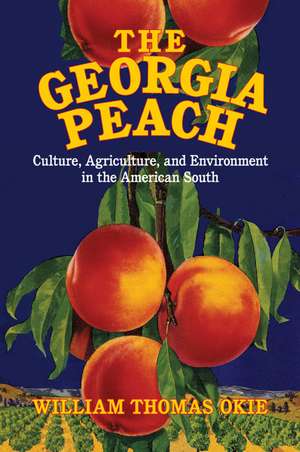
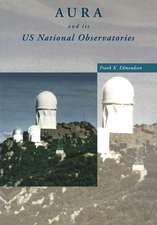


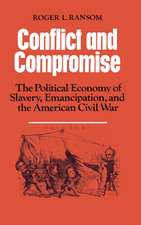


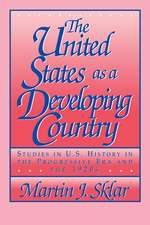


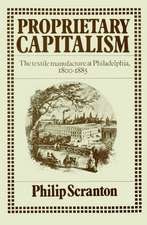
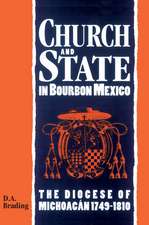
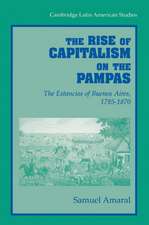

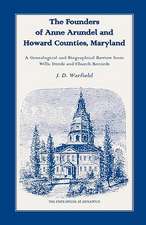

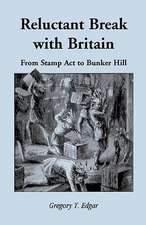
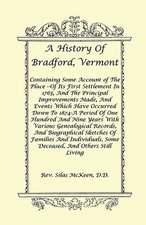
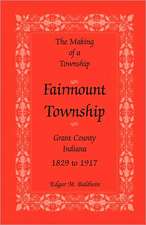


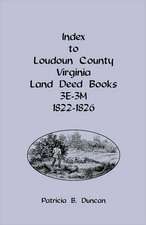

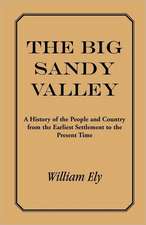
![Tax List of Berks County [Pennsylvania] of 1767](https://i4.books-express.ro/bt/9781585491292/tax-list-of-berks-county-pennsylvania-of-1767.jpg)
